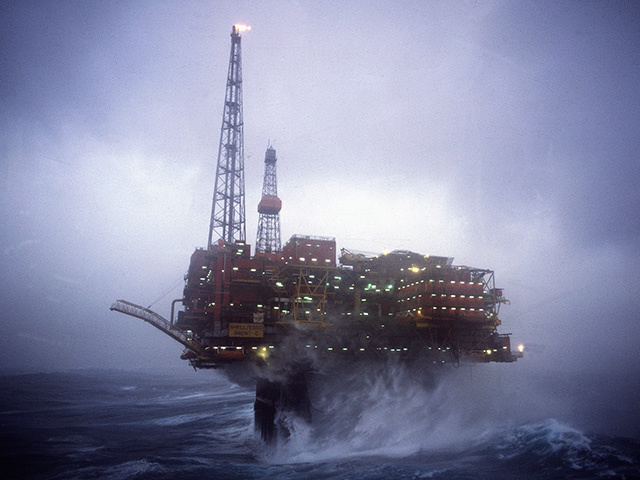
Green lobbyists and politicians yesterday accused Shell (LON: RDSB) of shirking its environmental responsibilities with its plans to leave the gigantic legs of its Brent field platforms in the North Sea.
Mark Ruskell, Scottish Greens MSP for Mid Scotland and Fife, said the Brent field had generated millions for Shell and its shareholders and should be left in the same condition in which it was found.
On Monday, Shell said it would recommend leaving the 300,000 tonne legs from three of the field’s four platforms in place, along with storage cells, the lower section of the Alpha platform’s jacket, drill cuttings and heavier pipelines entrenched in the seabed.
Shell said the safety risks outweighed the environmental benefits associated with removing the infrastructure from the field, which lies 115 miles north-east of Shetland.
It said the legs were not designed to be re-floated and that a project to remove them would be produce large volumes of carbon dioxide.
But Mr Ruskell, who is his party’s climate, energy and environment spokesman, said Shell has the skill and financial backing required to take out the structures.
He said: “Shell and its shareholders have made millions from North Sea oil and gas and the company now has a duty to give something back.
“Just because these steel and concrete structures are difficult and expensive to deconstruct and move doesn’t mean Shell should walk away from its responsibilities.
“Unless there is an overwhelming environmental case for retaining some structures on the seabed then they should be removed in their entirety.
“The company has the money, the manpower and the ingenuity to come up with a safe way to remove the structures and I urge them to do that.
“There are thousands of jobs that can be created in Scotland through oil and gas decommissioning and we should not be holding back the economic opportunity this presents.”
WWF Scotland director Lang Banks said Shell should aim to set a benchmark with its multi-billion pound Brent Decommissioning programme.
Mr Banks said: “While removing these structures is not without environmental risk, neither is leaving them lying on the seabed to slowly breakdown over hundreds of years.
“The industry pushed the boundaries of science and engineering to access North Sea oil and gas. Having made massive profits over the last few decades, it’s only right that it should push those limits once again to clean up their potentially hazardous legacy and protect the marine environment.”
Shell said the proposal to leave structures in the sea would be included in its Brent Decommissioning plan, which will be submitted to the Department of Energy and Climate Change for approval at the end of the year.
A 60 day public consultation will also be held.
Decc will then forward the proposals to Ospar, a pan-European body which was set-up to protect the marine environment of the north-east Atlantic, which will decide whether to exempt Shell from its responsibility to clear the seabed completely.
Duncan Manning, Shell’s business opportunity manager on Brent Decommissioning, said he was hopeful Ospar would give Shell an exemption, as it has done in the past for other operators.
Recommended for you

